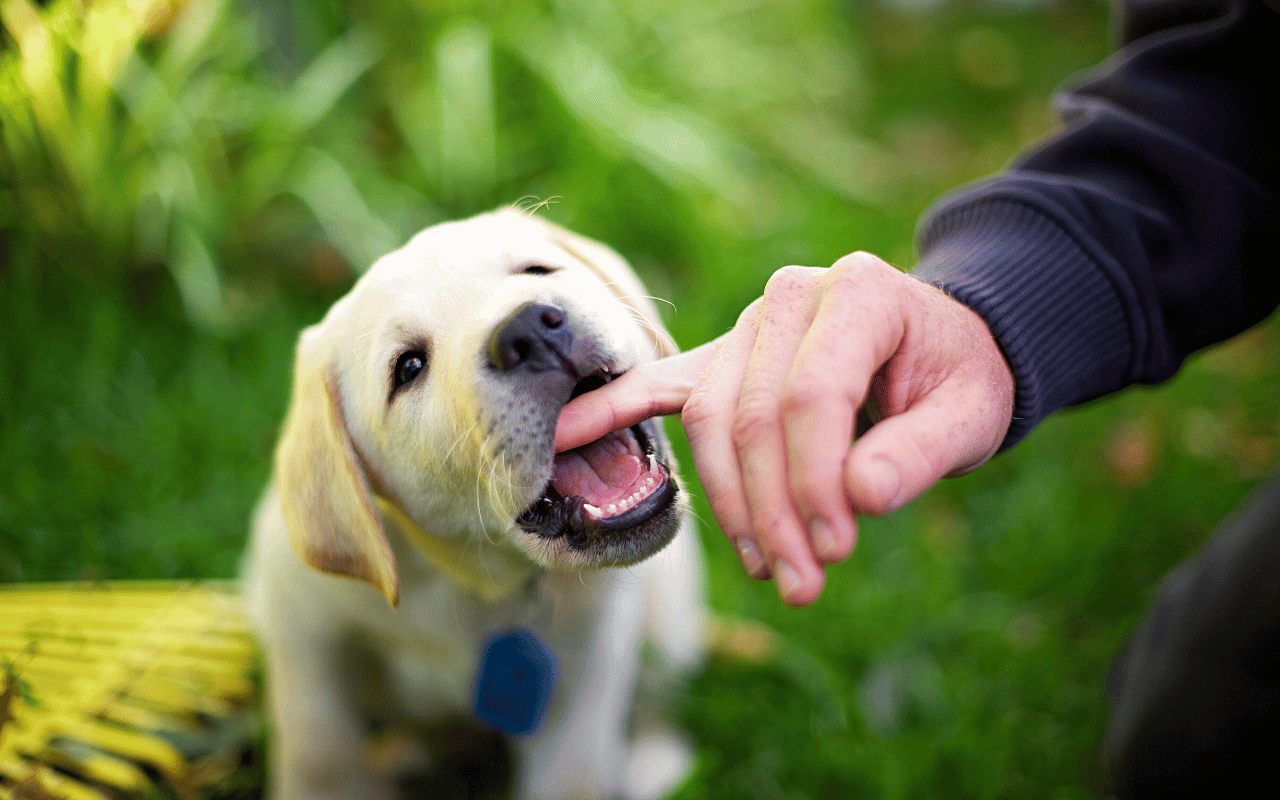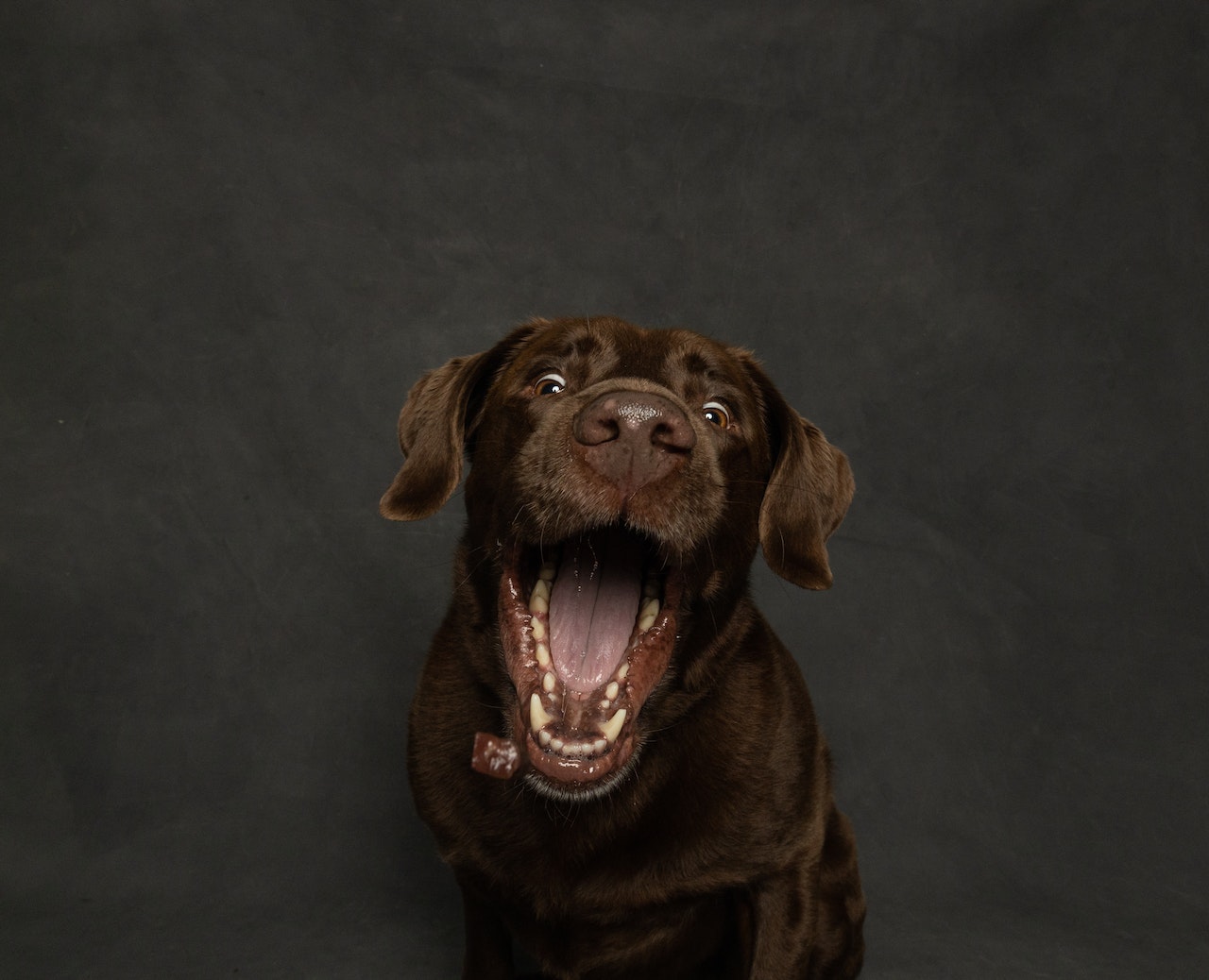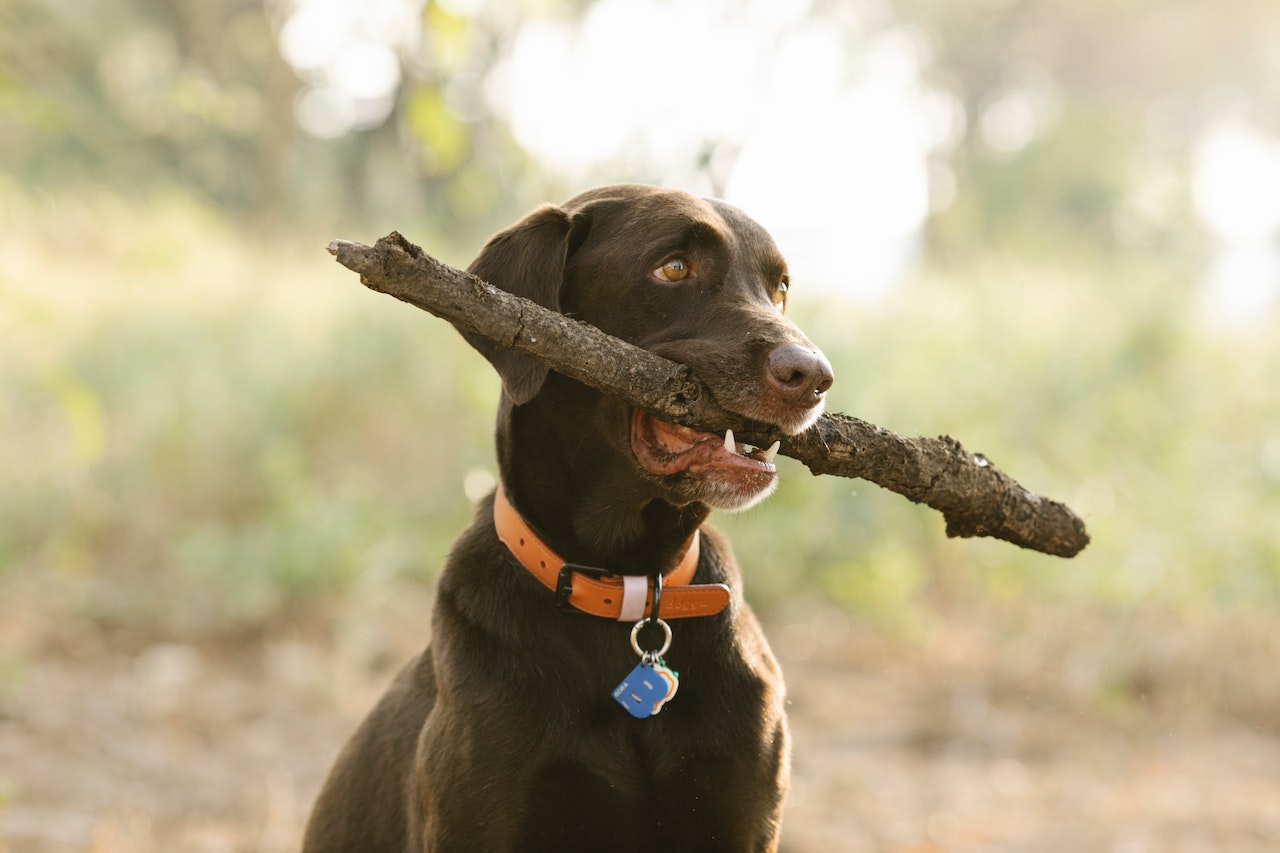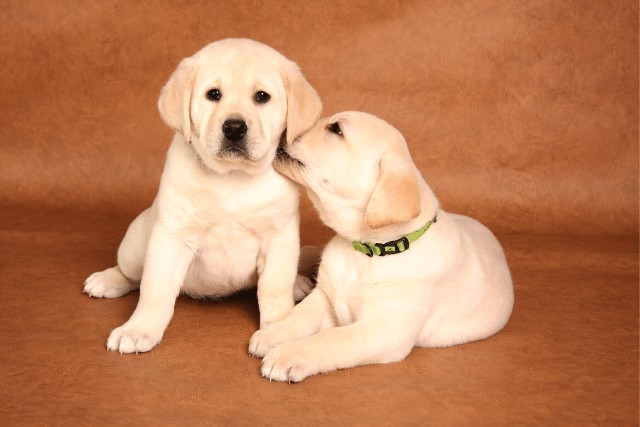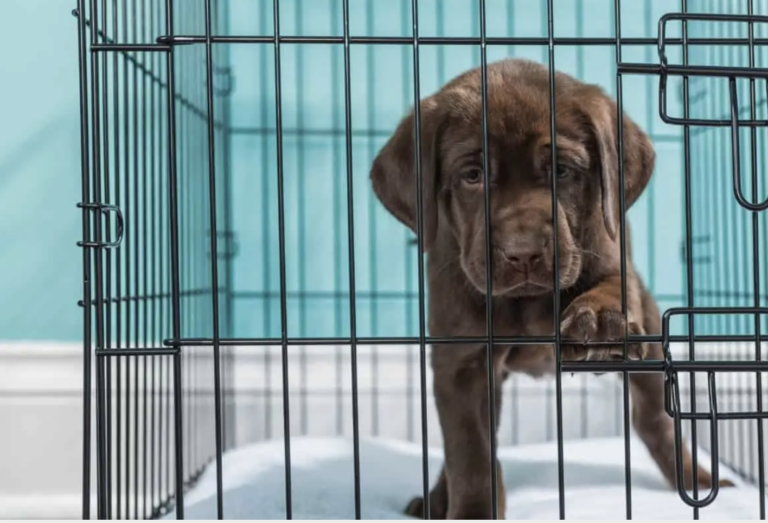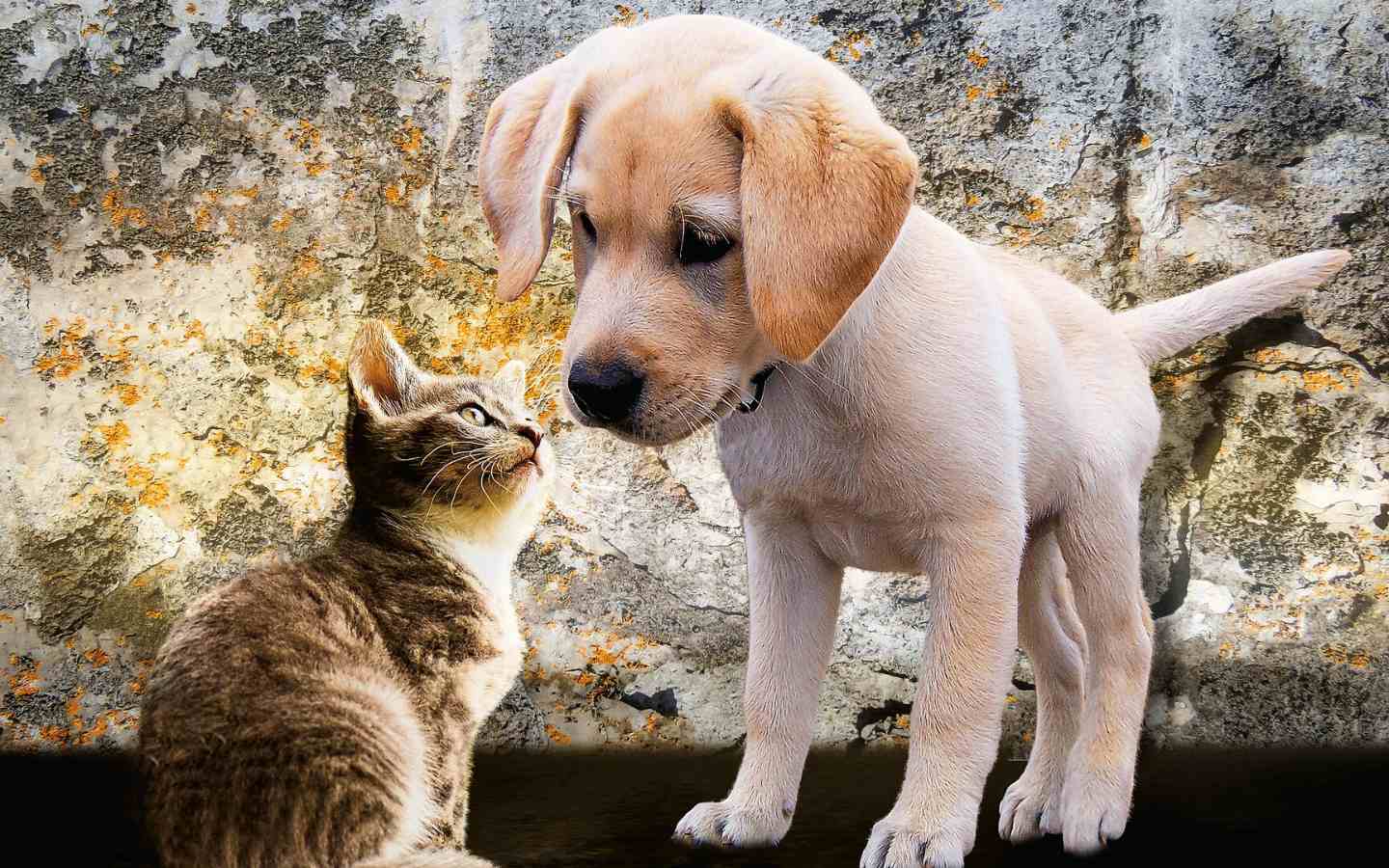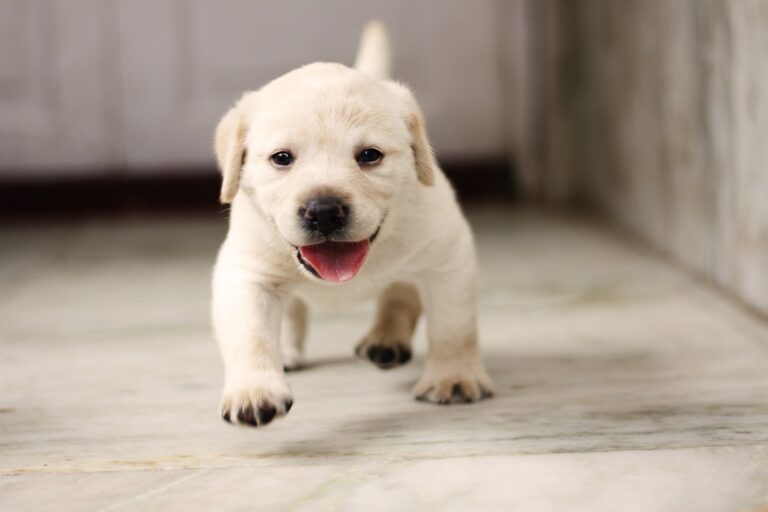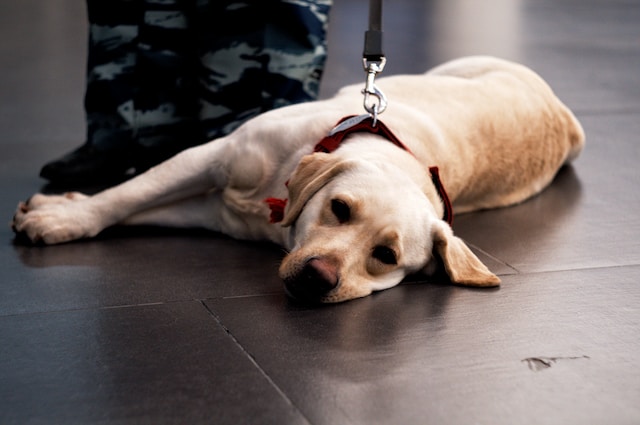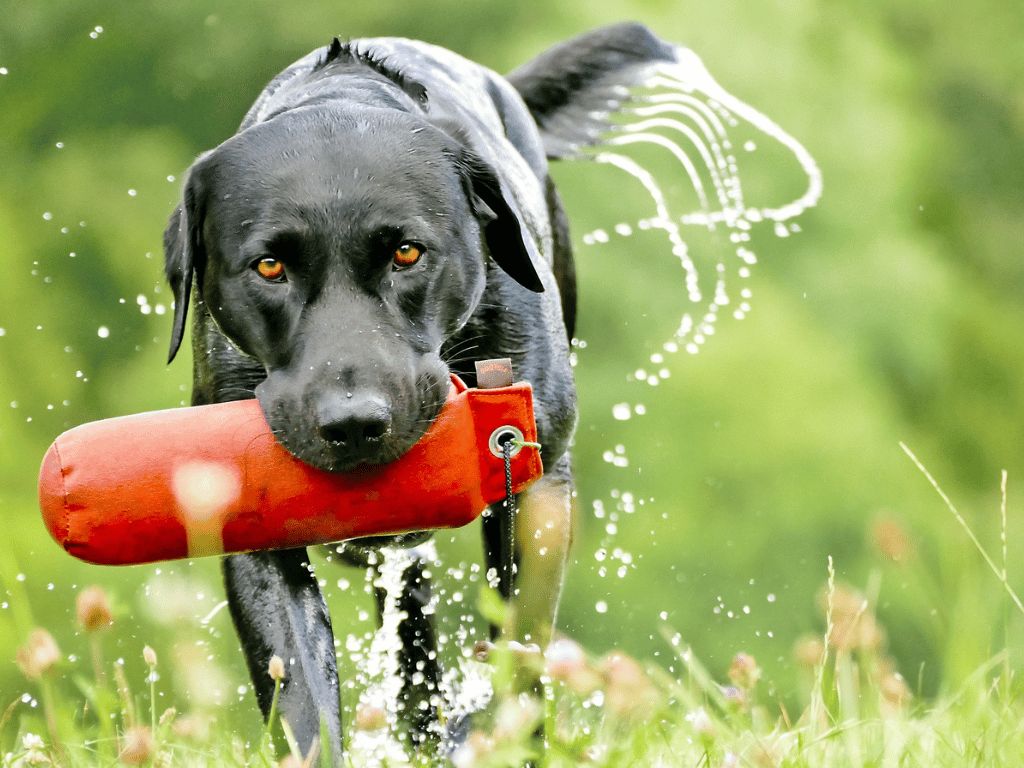How to Get Labrador Puppy to Stop Biting
Does your Labrador puppy bite, and do you wonder how to prevent a lab puppy from biting? Although your dog seems to be having fun biting your fingers, this is very rude conduct. Although labrador puppies are wonderfully adorable, their teeth may be painful when they pierce your flesh when you attempt to play. How can a lab puppy be trained to quit biting? Nobody wants to get bitten.
A mix of appropriate exercising, training, redirecting, and the application of positive reinforcement is ideal for preventing a Lab puppy from biting. Most owners try at least one of these techniques, but their effectiveness depends on how they are used them.
You have read every article. You have acted upon all of the suggestions. Nothing is working, either! Your lab puppy continues to bite you. This post is for you if it rings a bell. We’ll examine what you can do to stop your puppy from biting.
Why Labrador Puppy Bites
Labrador puppies investigate their surroundings and collect vital information with their lips. Puppies often chew to relieve the pain in their gums as they develop their adult teeth. Labradors may also bite for fun or out of aggressiveness and fear.
🦷Sensory Information Biting
A puppy learns various things from the things they bite, including how hard they can bite something, how it tastes, how it feels, and whether they can bite it again. Your dog has a mental inventory of all this knowledge that it refers to when it sees a comparable thing. Puppies must go through this learning process in order to develop into well-socialized canines. A puppy will lose its companion if they bite them too hard. Too tight of a bite might have unfavorable effects.
Biting is a natural habit for pups and even older dogs seeking sensory information. They can only use their tongues to investigate since they lack hands. There are methods to stop this biting, however, if you do not want your dog’s mouth to touch yours or your possessions.
🦷Teething
Your Lab’s mouth will begin to alter as it ages. The teeth they were born with start to fall out one by one as their adult teeth erupt through their gums. The process humans go through when young baby teeth erupt and are eventually replaced by adult teeth is the same.
This procedure is slightly difficult and very uncomfortable, much like with people. Puppies will chew on objects to remove gum between the new tooth and their mouth, speeding up the process. Puppies benefit greatly from this exercise as well, particularly if they are chewing on anything cold.
🦷Biting for Play
In the wild, wolves and dogs play by biting and grappling with one another. Your dog will attempt to play with you similarly because it views you as a part of its group. Of course, this biting is still not ideal, but it’s important to distinguish between play aggressiveness and true violence.
Wolves & dogs play, bite and wrestle with one another in the wild. Because it sees you as a member of its pack, your dog will try to play with you similarly. Although this biting is undoubtedly still undesirable, it’s critical to differentiate between play aggression and actual violence.
🦷Biting for Aggression
Body language is the most important clue of aggressive biting. A relaxed face and body muscles characterize puppy play. A puppy’s body will be rigid or frozen, its face will be very tense, and its lips may be pushed back in a growl or snarl when they bite out of hostility.
You should call your veterinarian to ensure your puppy is not in discomfort if you see a lot of hostility in them. A dog’s abrupt onset of aggression may be due to an undiagnosed ailment. If you get a clean bill of health, you should look for a qualified trainer to assist you.
How to Stop Labrador Puppy Biting
Before discussing how to stop biting, let’s go through what you should never do when your Labrador puppy is biting. Don’t first punish your dog by hitting it. In their minds, there is nothing wrong with what they are doing since biting is normal. Furthermore, you have no control over when it is appropriate to bite. This might lead to a lot of misunderstanding.
You can stop your Lab puppy from biting by following a few pieces of advice. Your hidden weapons against those lovely, tiny, keen teeth are exercise, training, redirection, and good affirmations.
🐕Exercise
Your Labrador puppy will get too worn out from everyday exercise to do anything except sleep, let alone bite you. Playing fetch, taking for walks, or utilizing enrichment toys are great ways to keep your Labrador in shape.
🐕Training
Before tackling anything in particular, I suggest receiving proper instruction in the fundamentals. Although it may seem difficult, teaching your Labrador Retriever puppy not to bite may be as simple as adding butter and pepper. Put butter on your arms and any clothing where your Labrador likes to bite you if they are biting you.
When your Labrador puppy starts to lick at the butter, respond with “yes, kisses, yes.” To further cement this instruction, I advise doing this before engaging in Lab play. This links the term “kisses” to licking and the delicious flavor your dog enjoys. The next time your Labrador attempts to bite you, tell them to “kiss” you instead, as they want a taste of your deliciousness.
There is an alternative strategy if your Labrador puppy is chewing shoes or furniture. Sprinkle a hot flavor, like taco seasoning or paprika, on the areas where your Lab chews. Then, when they chew it the next time, they acquire a bad taste in their mouth & stop.
🐕Redirecting
Another approach to prevent being bitten while playing with your dog is to steer them to objects they are permitted to chew on. When playing with your Labrador puppy, have some high-quality chew toys around.
Show them a chew toy & attempt to redirect the bite when your Lab begins to bite you. Your puppy should eventually start chasing its toys instead of you after a time.
🐕Positive Affirmation
Give your dog plenty of praise whenever they comply with your wishes, whether through licking or pursuing a suitable toy. Tell them how great they are and give them treats.
Does Sound Stop Puppy Biting?
There is little question that a loud enough shriek, followed by a quick shift in focus, will stop many Labrador pups from biting. Sometimes a trained owner may guide the puppy into a more suitable activity at such time. There is no question that for some pups, this has the opposite effect and makes them bite more vehemently and forcefully.
A puppy who has had enough time with his mother may be more inclined to hear this warning because he will anticipate that it will be followed by a sharp snap of her teeth and a harsher reprimand if he disobeys her. There are no promises made here, however. And the truth is that for some pups, squealing is ineffective as a bite-prevention technique.
⚠️Punishing the Puppy
I’ve heard that even seasoned breeders have advised new puppy owners to punish their pets if they bite. Using physical punishment, such as a scruff shake or smack, or even threatening the puppy with an enraged snarl. This could “work.” However, there are issues with this strategy.
Before being trained not to bite, several experts argue that pups should first learn to mouth or grip humans softly. We refer to this mechanism as biting inhibition. Additionally, the punishment could stop all biting rather than simply the heaviest, most agonizing bites. Many people now choose to teach dogs without using punishment.
⚠️Teaching a Dog Not to Bite
Why would we want to train our canines to bite people softly? Why not start teaching them not to bite at all from the beginning? Ian Dunbar popularized the notion of progressively eliminating biting. According to the notion, a dog that learns to restrain his bite—that is, to bite without using force—will be less likely to damage a human if he bites in the future.
Many new puppy owners struggle with how to prevent such uncomfortable bites in the first place. What should you do if ignoring the dog and shrieking are ineffective options? The first step isn’t a strategy but rather a change in our expectations of a young puppy.
⚠️Do Labrador Puppy Bite a Lot?
New dog owners may have unrealistic expectations for their pups. This includes expecting that there won’t be much biting, that it won’t hurt much, and that growling won’t accompany it. They also believe it will be quite fast and easy to stop a puppy from biting. None of these predictions are accurate.
Most pups bite firmly, repeatedly, and angrily while doing so. This noise does not indicate hostility (see Help, my puppy is aggressive). Biting by a puppy can be stopped, but it takes time and effort. And it could be unpleasant for a while! It’s crucial to acknowledge that there is no certain approach to get someone to quit biting immediately. As we’ve shown, bite prevention (as opposed to inhibition) could be harmful in any scenario.
⚠️Supervise the Puppy Around Children
It would be best if you considered how you would safeguard any youngsters who may come into touch with the puppy after you have accepted the idea that this process will take time and be gradual. This is crucial because pups that bite tiny toddlers may also inflict harm on them. When you can’t carefully observe, barriers like baby gates and a cozy dog box assist in keeping puppies and young toddlers away.
⚠️Calm your Dog to Stop Biting
Next on the list is keeping your pet relaxed. Compared to less enthusiastic pups, overexcited puppies bite more forcefully and often. Avoid roughhousing with your dog if he is a very passionate biter. This will trigger a new round of biting. Puppies may be interacted with in various ways without engaging in playtime. Visit our post on how to play with your dog safely.
⚠️What to Do When Puppy bites
If your dog bites you severely, react right away. Stop waiting to see whether he repeats the action. Move away from him and stop paying any further attention by standing up. You may give the squeal technique a try. Some pups respond well to this. Expect him to try once more. Prepare for it and replicate what you did.
Step over a baby gate or place the puppy in his box for a short period if it runs after you and starts biting your legs and feet. More information about this procedure may be found in the following article: How to handle biting. Rinse until the puppy understands that taking harsh bites is unacceptable.
Keep in mind that puppies like to chew and need to gnaw on something while they are teething. Although you and your belongings are inappropriate chew toys for puppies, you must provide them with alternatives.
Tips to Stop Labrador Puppies Biting Habit
Labrador Retrievers are endearing, entertaining, and sociable. Additionally, they have wonderful facial expressions and are charming. It’s understandable why they continue to rank at the top of the list of the most well-liked family dogs and excel in therapy dog training. But Labrador Retrievers need to be trained just like any other breed.
Despite their sweetness and friendliness, Labrador puppies may become rebellious adult dogs if they are not trained to control their easygoing nature. Biting may seem innocent at first, but you shouldn’t encourage it or let it become a habit. Let’s check out your abilities. Here are some tips to stop your Lab puppy bites.
☑️Know Why they Bites
Do not assume that your Labrador puppy is the only one whose owner’s pet bites or chews. No of their breed, all pups behave in this way, particularly while they are teething. In addition, pups use each of their senses to investigate the environment. They put everything in their mouths to determine if something is edible and how it tastes.
Imagine them as inquisitive infants who are learning about the world around them. Additionally, Labrador Retrievers naturally bite. These dogs have an innate desire to pursue, catch, and bring their prey back to their master. Because of this, Labs are mouthy and like biting on anything, even your fingers or toys.
☑️Differentiate Between Aggressive and Playful Biting
They know when your puppy is acting playfully and when they are really hostile is another important aspect of how to stop a Lab from biting. Many people assume that when a puppy growls, it is hostile. However, pups’ play with their littermates sometimes involves biting, growling, and snapping. Their constant fighting, chasing, and wrestling serve to hone your dog’s instincts.
Therefore, it is understandable if your puppy growls when it tugs at your clothing or tries to gnaw on your shoes. It doesn’t always imply that your dog is hostile. Instead, it most likely indicates that your dog is having too much fun and is overexcited.
☑️Teach Your Lab Puppy How to Play
Owners often let their Labradors play with their hands before wondering how to stop their Lab puppy from biting. It’s important to make it clear from away that feet and hands are not toys. Every time your Lab tries to nibble on your fingers, firmly exclaim, “No!” By doing so, you may prevent puppy bites from ever occurring. Additionally, try not to overexcite your Lab puppy while playing.
When you play with your Lab, please pay attention to them and stop the game anytime you see them or them growing excited. Playing again when they have calmed down is recommended.
☑️Teach Bite Inhibition
It would be best if you first educated your Lab puppy to regulate the force of its bite before you can teach them not to bite. That is what experts refer to as bite inhibition. It’s not as difficult as it seems. Puppies are already aware that they must use caution while biting. They pick it up while having fun with their mother, siblings, and littermates.
Young Labrador pups learn that biting harshly will result in “punishment” in this fashion. You ought to use a similar strategy. You no longer pay attention to your Lab puppy when it nibbles at you. That entails refraining from staring at and conversing with your dog. Some pups may chase after you if they get extremely eager. If that occurs, you may confine your puppy for a short period of time in its box. If the puppy pursues you, you may also use baby gates & step over them. When your Labrador puppy nips you, resist the urge to pull your hand.
That might set up your puppy’s instincts, causing him to bite more forcefully. Await the puppy’s release before moving forward. Your puppy will eventually realize that biting is bad behavior, and the only way to get praise and incentives is to quit biting.
☑️Distract Them
They could bite any time you pick up or massage a Lab puppy. To prevent your Lab puppy from being used your hands as toys in this situation, utilize a distraction. I’m referring to petting your dog while holding a treat or a toy in one hand. You don’t need many toys for your Labrador dog to be amused. A few decent ones will suffice as long as the toys suit your Lab’s preferences.
☑️Ensure Your Dog Not React to Your Hands
You may also use positive reinforcement when unsure how to stop Lab pups from biting. All you need is a lot of patience, along with some rewards. This is how it works:
You reach out to touch your pet.
You respond “Yes” and reward your Lab if they don’t react or try to reach for your hand.
The puppy is then rewarded for being calm while your hand is brought further closer to them. Continue doing it until your dog stops attempting to bite your fingers.
☑️Evidence of Relief From Teeth Pain
You should anticipate that your Lab puppy will attempt to bite everyone and everything while they are teething. That’s because chewing or biting is the only thing that relieves teething discomfort. So how can you prevent a Lab puppy from biting when it is teething?
When your Lab bites something, it shouldn’t turn its focus to these toys. In addition, give your Lab some ice treats to calm down his irritated gums. You may also ask your veterinarian about some numbing gels if the teething becomes unbearable.
☑️Do not Punish Your Labrador Puppy.
Positive reinforcement must be used to educate your Lab puppy not to bite. This entails encouraging your dog to repeat actions. Puppies bite often and won’t realize why it’s such a huge problem. Your Labrador will only become scared and hesitant around you due to your actions. Try to build your position as a competent leader instead of screaming. After all, dogs seldom attack humans they respect.
☑️Participate the Family
The whole family should take part in preventing a Lab puppy from biting. Whatever method you use will be useless if other family members let the puppy play with its hands or yank at their clothing. Children often disobey the rules, which might result in injury. Training Labrador pups to avoid biting is not difficult. You must, however, exercise patience and consistency. Don’t succumb to your Lab’s adorable expressions and puppy eyes. Decide on your “hands/feet aren’t toys” guideline and adhere to it at all costs.
Frequently Asked Questions
When do Labrador pups stop biting?
Be warned that even if you do everything correctly, this habit cannot stop fully until your baby is 5 to 6 months old. Keep in mind that puppies go through natural developing stages. This blog will provide you with additional advice and suggestions for pups that are particularly biting or those who begin biting after 5 to 6 months of age.
Do Labrador puppies typically bite?
It must be acknowledged that at this period of growth, Labradors are much more prone to biting than certain other dog breeds. As pups, retrievers, in general, have a tendency to bite a lot.
What happens if you get bitten by a Labrador?
You should contact a doctor as soon as possible if the wound does not stop bleeding if pus is forming, if there is redness and swelling, or if the bite area is warmer than other areas of the body. Antibiotics must be used to treat a dog bite to prevent infections.
Do labs protect their owners?
A Labrador Retriever can be the finest choice for a guard dog, depending on your preferences. Despite being able to serve as your guard dog in an emergency, they are gentle, devoted, and loyal. Moses could really defend you even if you are not conscious that you’re in danger.
When do Labradors start to become protective?
Yes, they do, and with the right training, they can serve as trustworthy watchdogs against intruders. You need to know that your Labrador will make an excellent security dog if trained early, between 8 and 12 weeks.
Final Thoughts
A Labrador retriever’s instinct is to bite, but it’s important to distinguish between fun and aggressive bites. Above all, always exercise patience with both yourself and your dog. Even if it feels like they are moving slowly, it is progress! Keep up your consistency as you try to stop puppy biting. Your dog may get perplexed when inconsistent behavior occurs. And as we are all aware, confusion is not the same as advancement.

